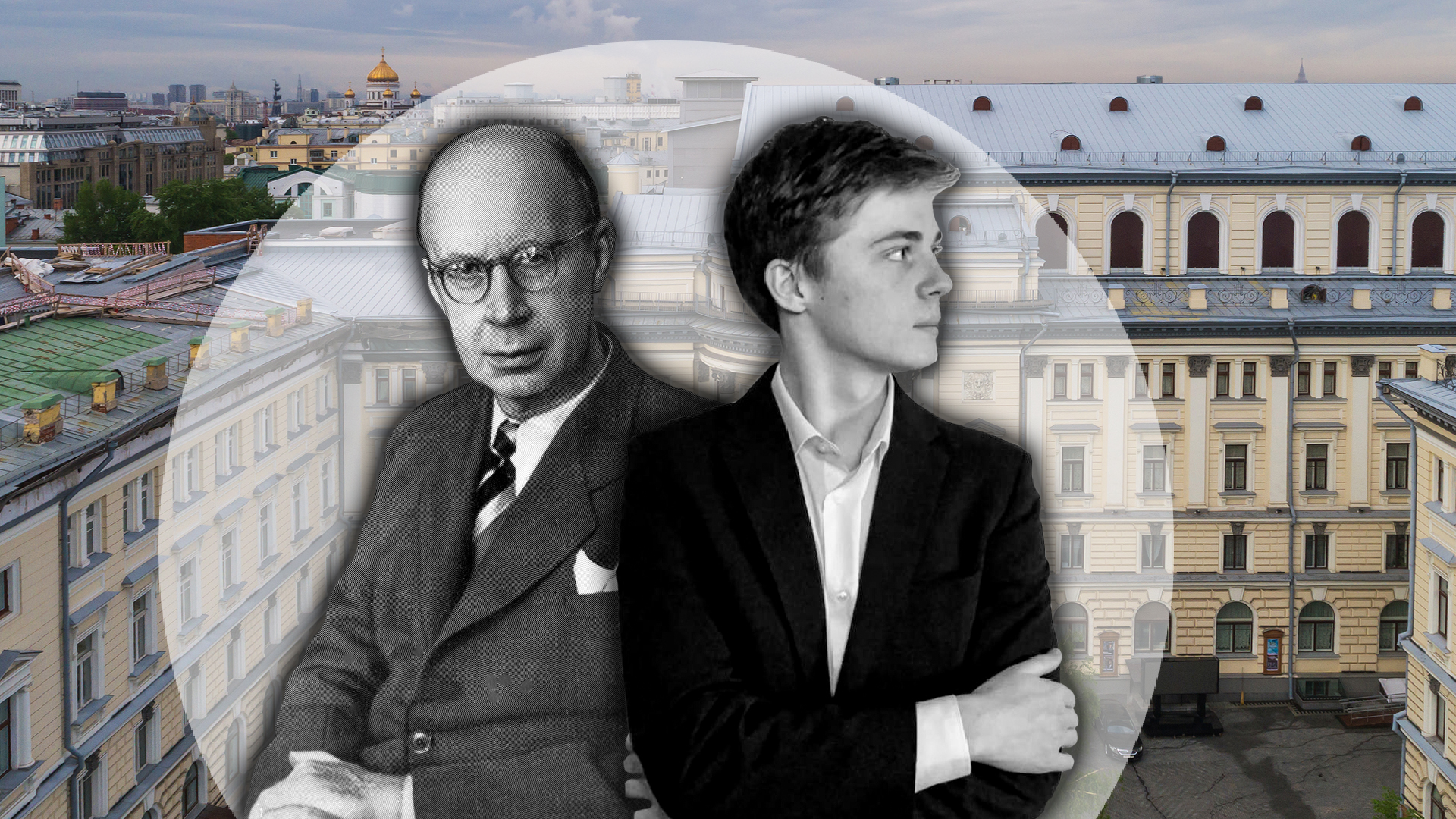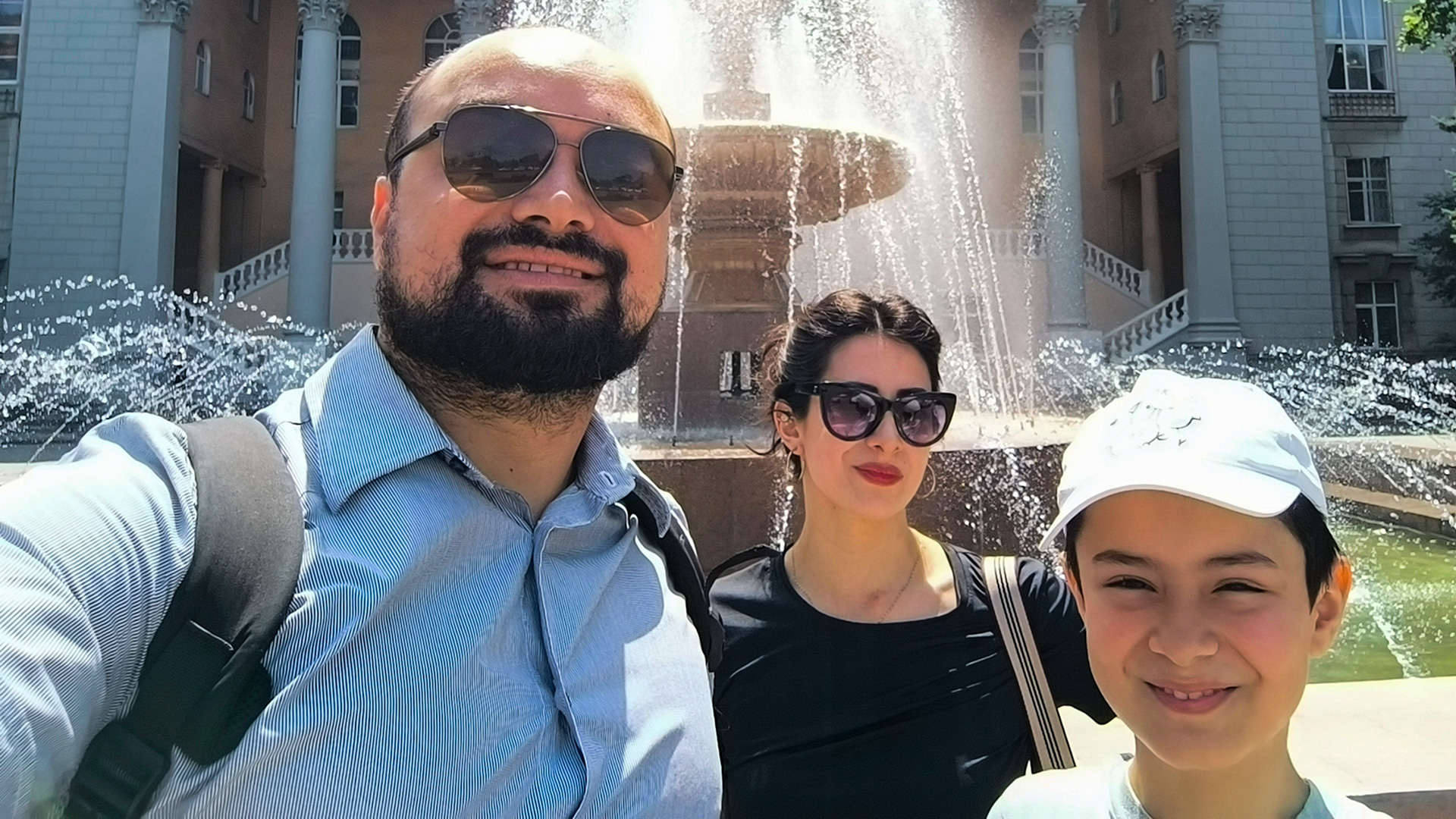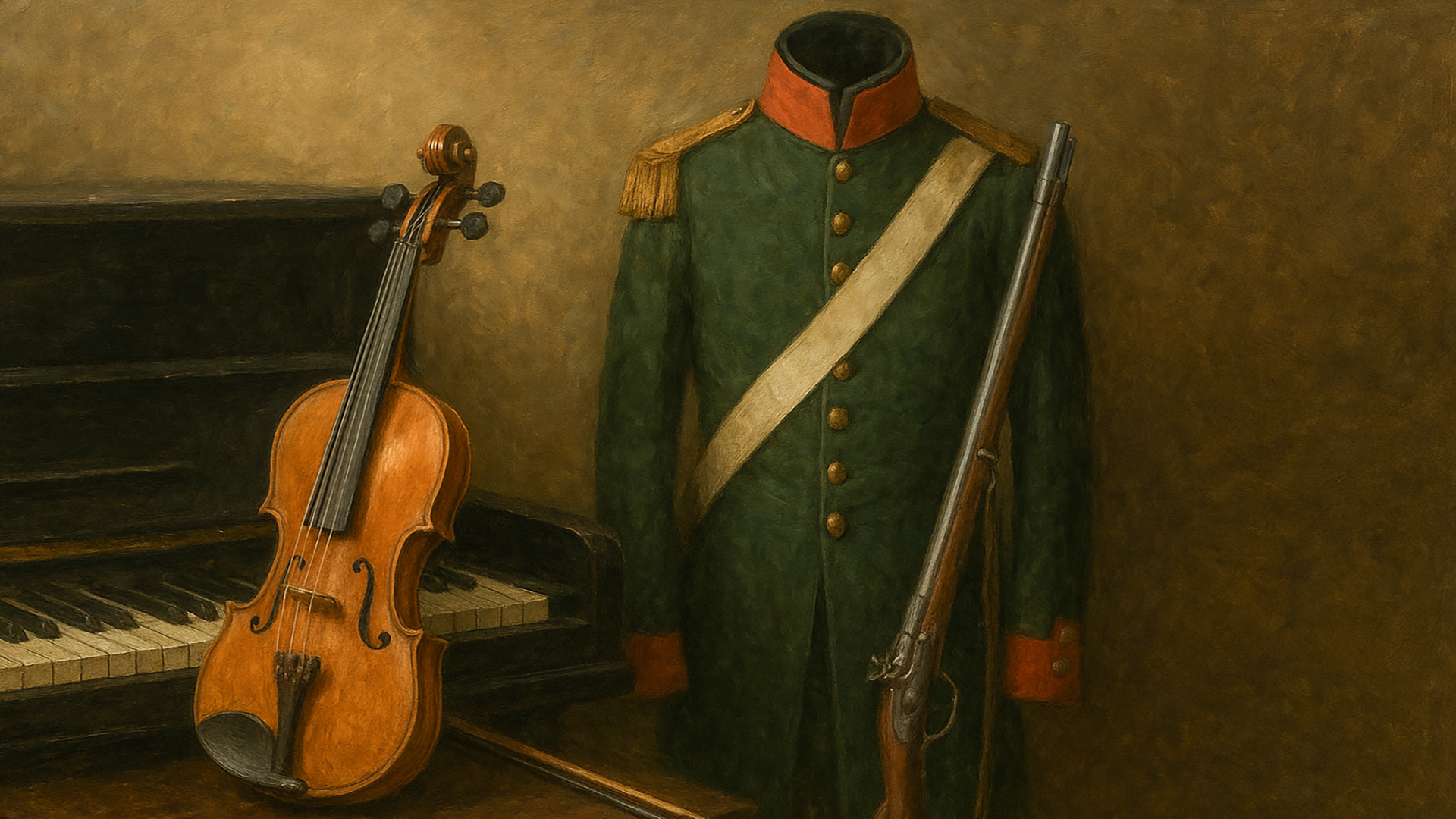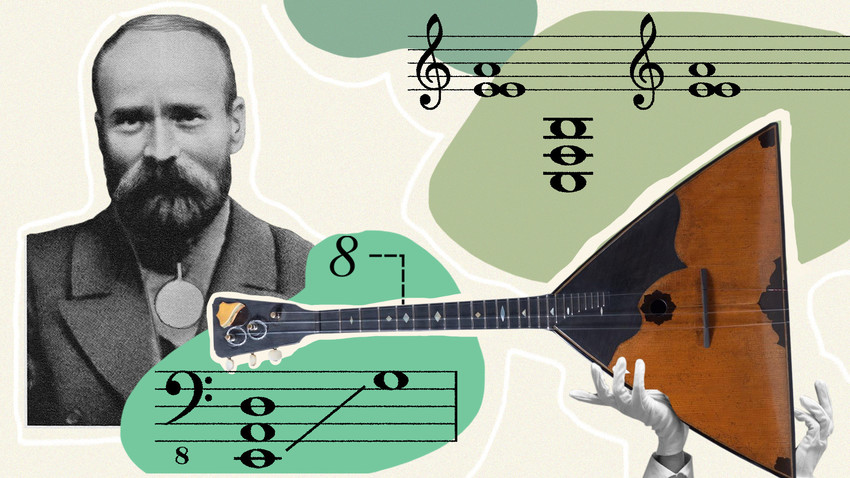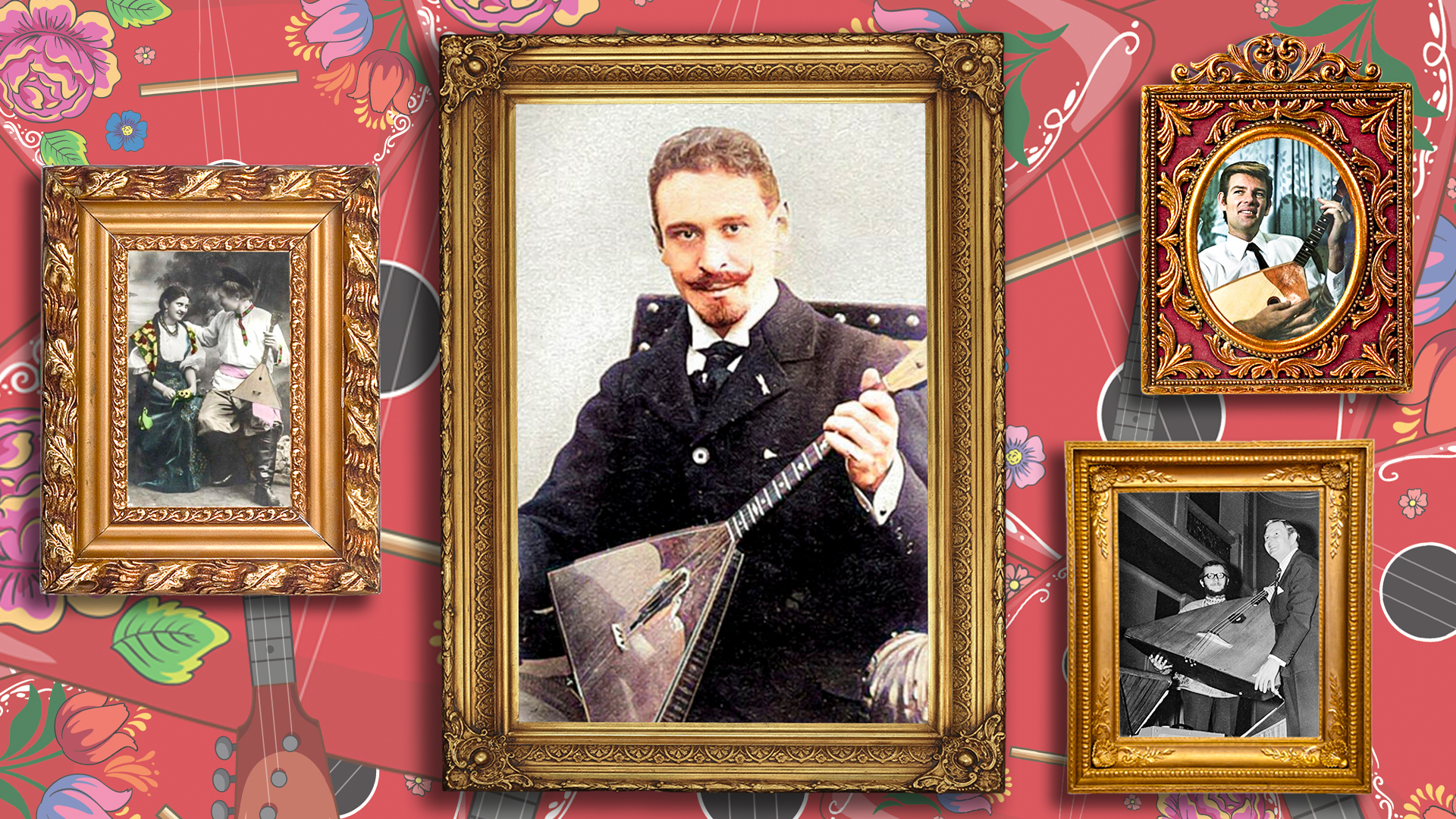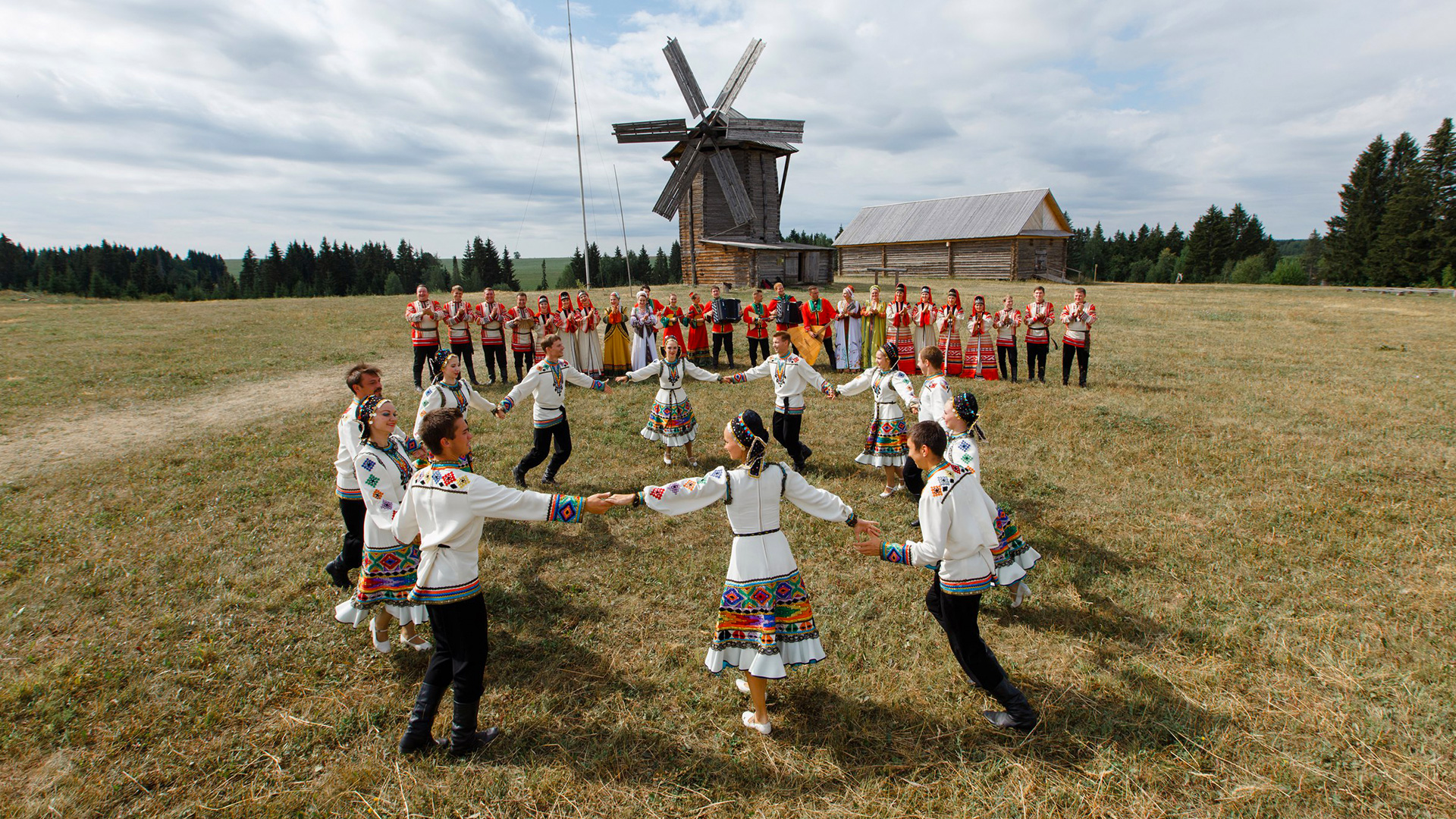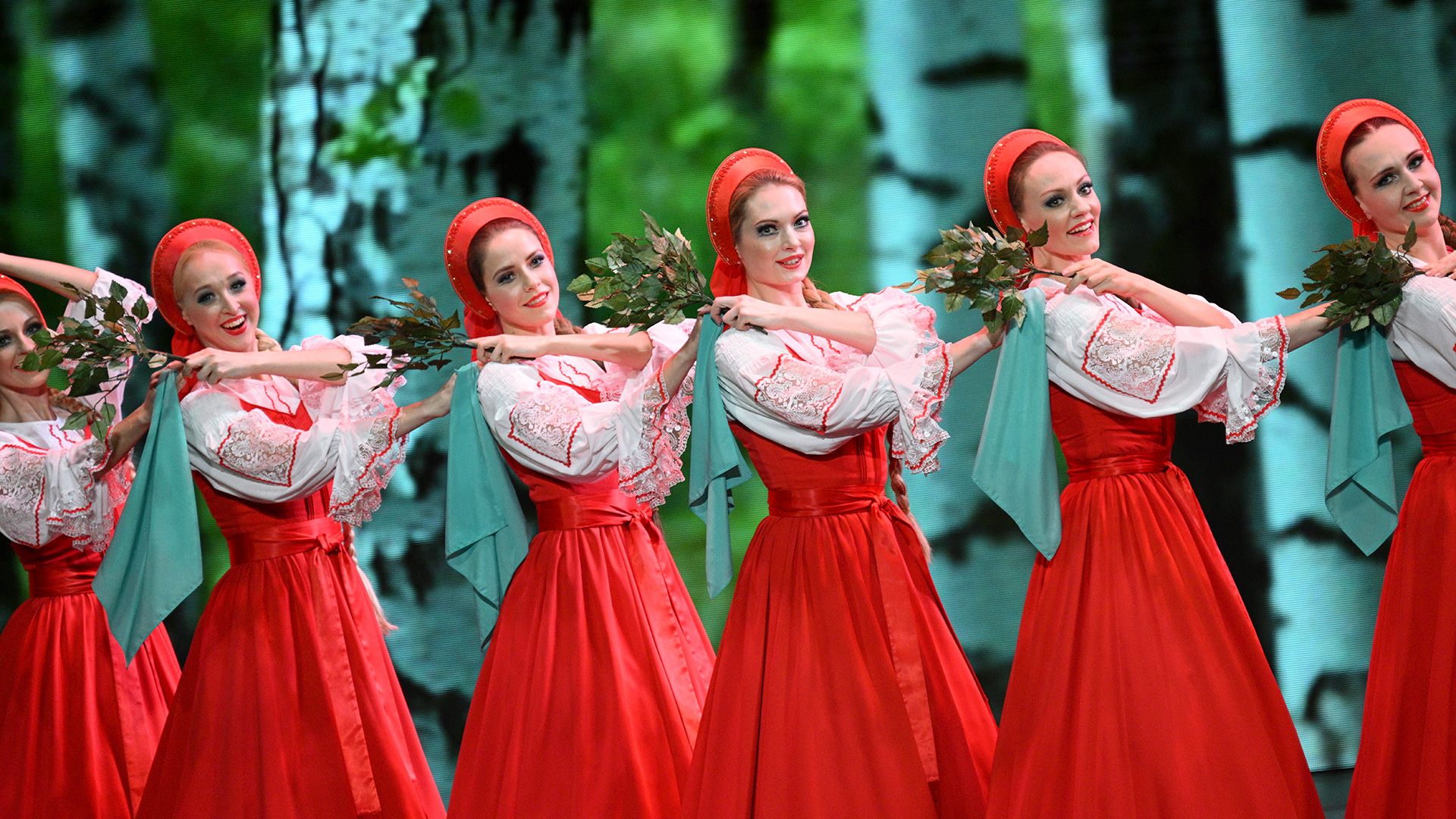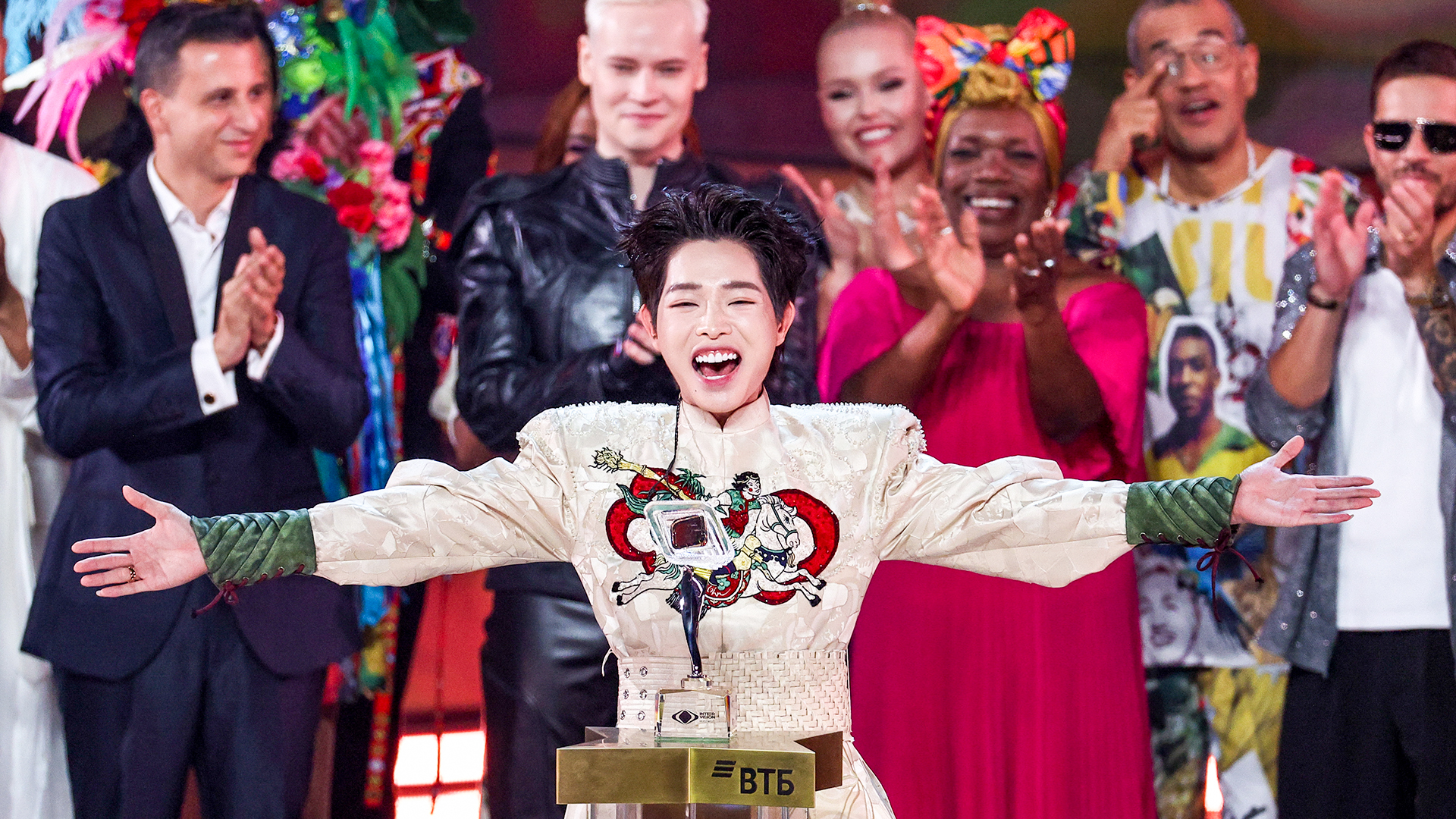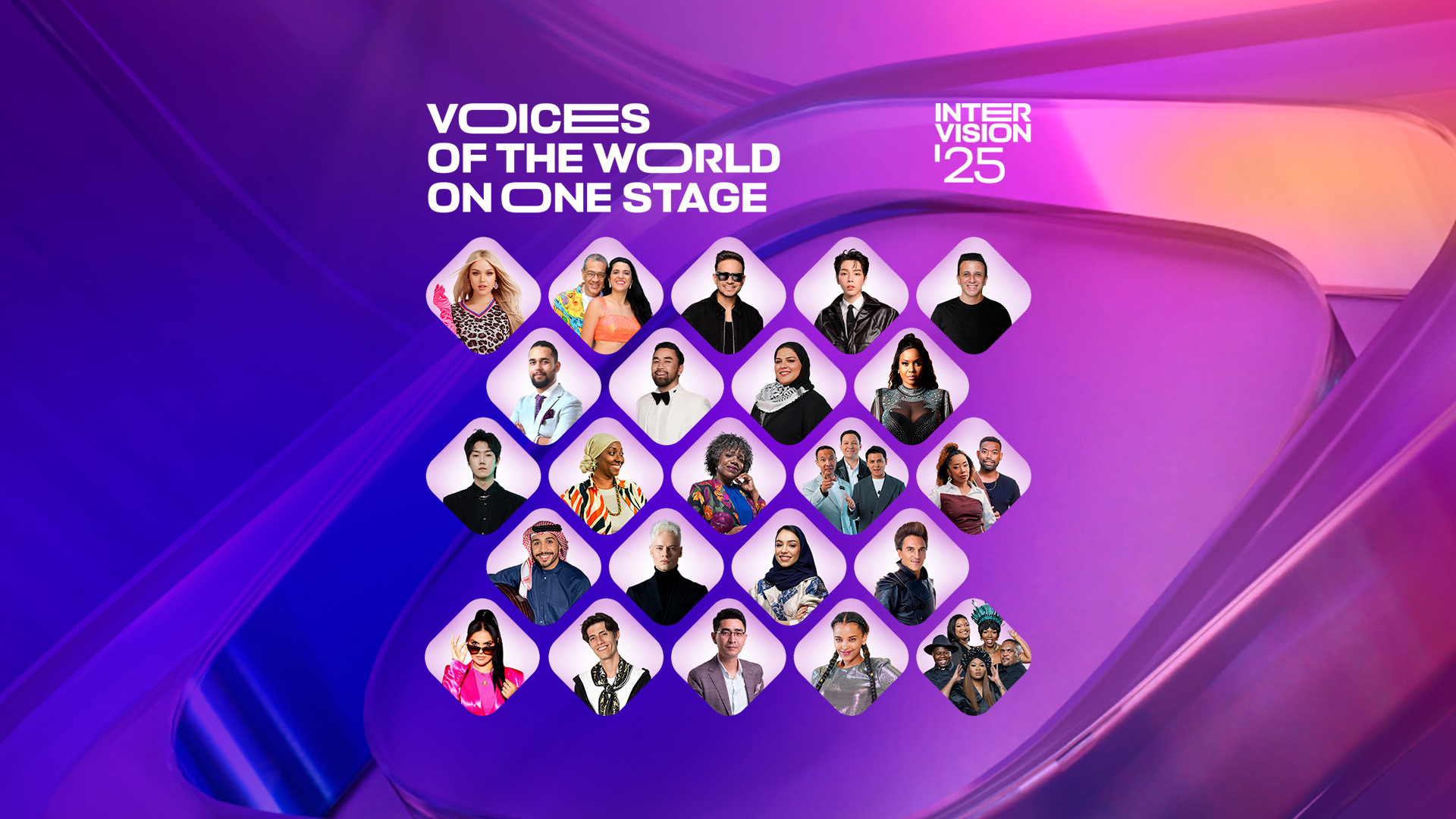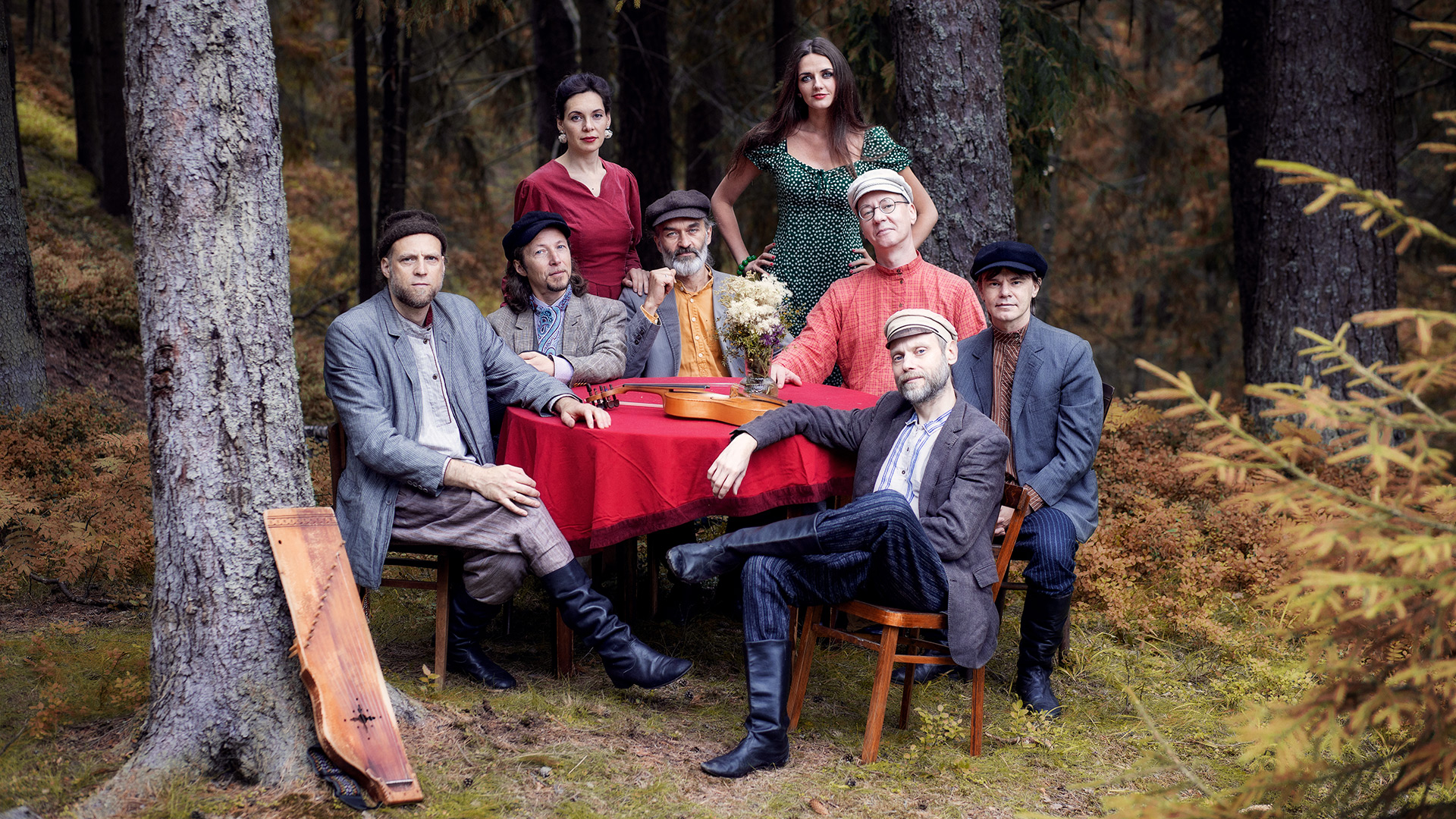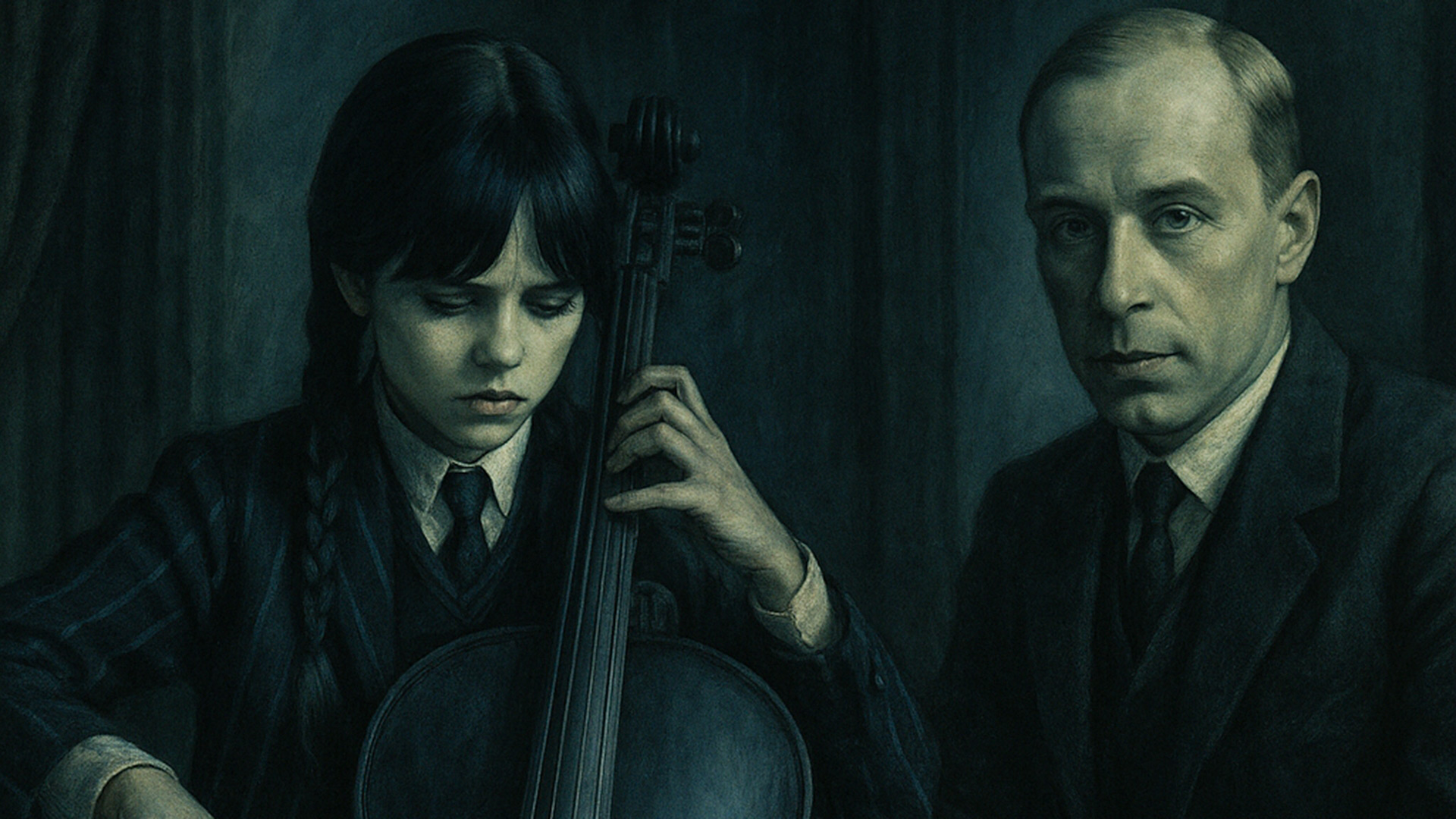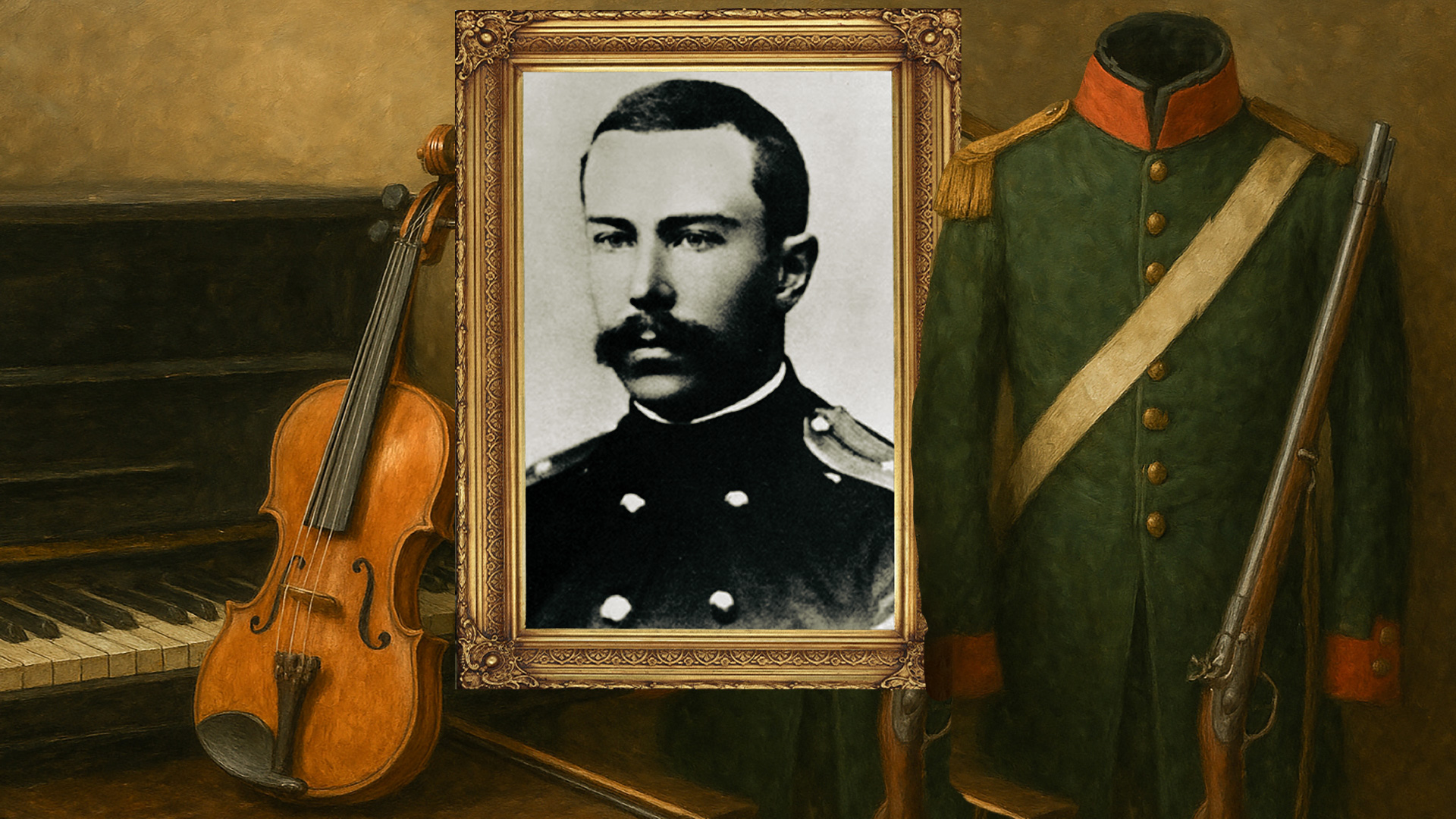
Russian history in MUSIC: Biggest hits from every era (VIDEOS)
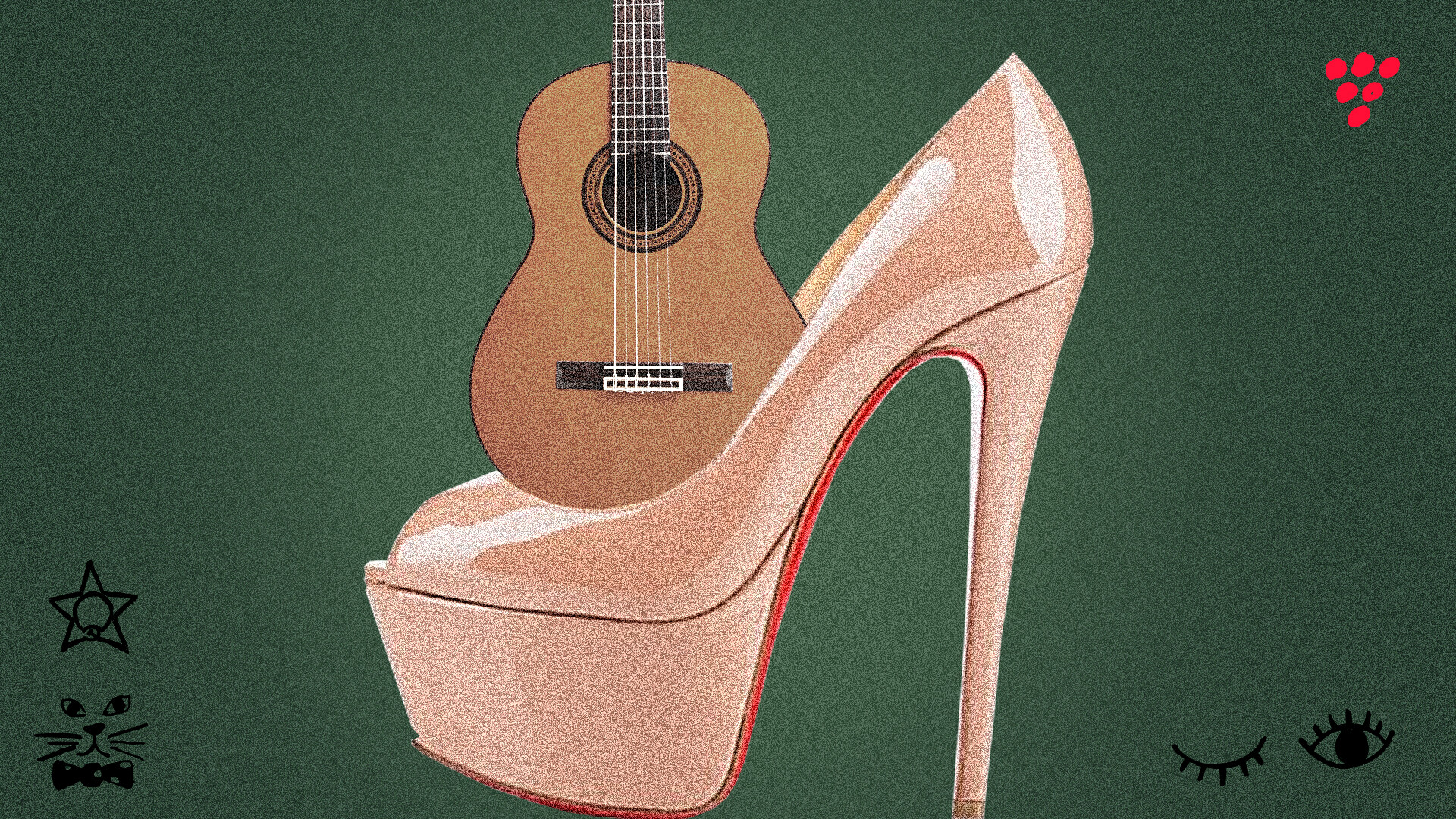
Pre-Revolutionary
March of the Preobrazhensky Regiment
The Preobrazhensky Regiment was established by Peter I in 1691. In his lifetime, the regiment obtained its own march. It was performed at celebratory functions in honor of the victory in the Northern War of 1721. Later, in the 19th century, the march was given the lyrics to a soldier song (“The Turks know us and the Swedes…”), singing praise to the first emperor and his troops. Prior to the emergence of the Russian Empire’s anthem in 1883 (‘God Save the Tsar!’), the march was considered the unofficial anthem. The author is unknown.
‘Korobushka’
The lyrics to this old Russian song draw from the first lines of Nikolay Nekrasov’s poem ‘Korobeyniki’ (1861). However, the melody is, evidently, much older. In the latter half of the 19th century, it was often performed not only by korobeyniki (“small merchants”) themselves, but also often heard at various peasant gatherings.
‘Kalinka’
Surprisingly, ‘Kalinka’ isn’t even a folk song. It was written in the folk style by composer Ivan Larionov and first performed during an amateur home play. It was popularized by singer and folk historian Dmitry Agrenev-Slavyansky. In 1868, he founded the ‘Slavyanskaya Kapella’ choir, with which he performed in Russia and abroad. ‘Kalinka’ was part of their repertoire.
‘Аh, Vy Seni, Moi Seni’
This Russian dance song, penned in 1790, has folk roots. It tells the story of a young woman, whose strict father won’t let her go out with potential suitors, but she plans on disobeying and “have fun with the boy”. The word seni, meanwhile, is a veranda-style attachment in a Russian wooden izba (house), where our hero stands as she sets a falcon free (although, the word is often used to mean “entryway” or “hall” in a traditional home).
‘Ochi Chernye’
Literally meaning “black eyes” (the old version of the latter word is used here), this popular Russian romantic song was written by Ukrainian poet Evgeny Grebenka to the music of composer Florian German - a native German who lived in the Russian Empire. It was first published in 1884 and, later, made famous by singer Fedor Shalyapin, who performed the romance during his world tour, adding a few of his own verses, dedicated to his then future wife, Iola Tornagi.
Soviet
‘Murka’
Songs of the criminal world became an important facet of Russian culture in the early 20th century, when the Bolsheviks came to power. Art historians claim that the slogan, “He who was nothing, shall become everything”, coupled with a hatred for the bourgeoisie, made the phrase uniquely applicable to that stratum, which rose to prominence during the period. ‘Murka’ is considered one of its cult songs, singing praise to the culture of thieves, as well as its vision of an ideal woman (Murka is a very lowly diminutive version of the name ‘Maria’, as well as being formed from the abbreviation for the Department of Criminal Investigation).
‘Siniy Platochek’
The waltz, translated as “blue handkerchief” does not contain a single word about war, but became one of the most popular wartime songs. Written by composer Ezhi Peterbursky in 1940, the lyrics were penned by poet Yakov Galitsky, who attended the first performance. They deal with a young woman’s farewell to her suitor. After the song was performed by iconic Soviet singer Lidya Ruslanova, it became a major Soviet hit. War struck the following year and Ruslanova headed to the front, performing ‘Blue Handkerchief’ for Red Army soldiers.
‘Svyashchennaya Voyna’
The song, which translates as ‘sacred war’, was written two days after the start of World War II by poet and Stalin Prize laureate Vasily Lebedev-Kumach. It was performed several times for Soviet troops when they headed to the front, but then forgotten until October 1941, having been considered too tragic. The verses tell of heading to one’s death. And when the Germans took Kaluga, Rzhev and Kalinin on October 15, the lyrics became incredibly salient. It was obvious that this was going to be one long war. ‘Svyashchennaya Voyna’ then became a sort of unofficial anthem, played daily over the radio waves to the morning ringing of the Kremlin bells: “For the world and for peace we fight, and they - for a kingdom of darkness”, the immortal lines went.
‘Katyusha’
Another classical Russian song with a folk motif, ‘Katyusha’ was written right before the Great Patriotic War by composer Matvey Blanter, to Mikhail Isakovsky’s lyrics and first performed in 1938. One version of events posits that Russian soldiers had used it to sing praise to an artillery weapons system, adopted early in the war. The lyrics tell of a girl who awaits her loved one from the front.
‘Hochu Peremen!’
This song, which translates as “I want change!”, by Vitkor Tsoy - the iconic lead singer of the Soviet rock band ‘Kino’, actually wasn’t political, but it was this interpretation that ended up securing its place in history. We hear it at the end of the movie ‘Assa’ (1987) and it became the main hit of the era of Perestroika - perhaps, because it so directly articulates the nation’s feelings during the Soviet decline: “And suddenly, we’re afraid to enact any changes” the lyrics go, attempting to explain why no change comes about.
Post-Soviet
‘Buhgalter’
After the breakup of the USSR, the national image began to be revamped and a new hero entered the scene - the regular buhgalter (accountant/bookkeeper). The girl group ‘Kombinatsiya’ (“combination”) wrote songs in the style of the iconic pop group ABBA. In 1991, they recorded one that didn’t quite fit their ordinary style and had a bit of a 1990s Russian gangster flare to it. It dealt with a simple bookkeeper just trying to make ends meet. Nonetheless, the song’s female protagonist wants to go for him - and not a “foreigner” or a “millionaire’s son”.
The track became a hit at every office party for years, owing to its keen sense of who really ruled the roost in the post-Soviet space. If, prior to that period, it was some manager at the meat section of a grocery store - who often had access to deficit goods they could make money with on the side, then, with the arrival of the 1990s, the picture changed and it became the humble accountant’s time to shine - for they knew how to fill suspicious gaps in record-keeping and not attract the attention of the taxman.
Needless to say, not every accountant of the 1990s was as corrupt as the male protagonist in the song. But even an honest lowly one was still an admirable image to uphold in a country that had just entered the scene: he was seen as a “small person” who counts money day in and day out - not his money, of course - but it was still large sums.
‘Kombat’
Kombat - or komandir batalyona (“battalion commander”) is a song by another iconic 1990s group called ‘Lyubeh’, recorded in 1995 to mark the 50th anniversary of the Great Victory over Nazi Germany. However, it was released at the height of the first Chechen campaign and became a perfect fit, discussing the tough everyday existence of the battalion commander, risking his life every day and never hiding behind the backs of the 18-year-old conscripts under his command. ‘Lyubeh’s fame really exploded with ‘Kombat’, solidifying their reputation as a patriotic rock band, with songs about a hero, always ready to make the ultimate sacrifice for the Motherland.
‘Strana Limoniya’
This song, which translates as ‘country of Limoniya’ is a play on the 1990s slang word for one million rubles, which uses the Russian word for ‘lemon’ (limon). Having this many zeros on you was a real achievement in those days, when the ruble had greatly depreciated, crime was rife and the black market and shady businesses ran rampant. The year was 1990, so ‘Strana Limoniya’, by the band ‘Dyuna’, was bound to be a huge success.
“We used to sing about miracles happening abroad, about how to make some money,” vocalist Aleksey Rybin once confessed. The song contains the following lines: “There’s lemon garden across the sea. I’ll find a lemon and be happy. But I’m not sharing and don’t you dare blame me.” Rybin pretty much captured the Russian morality of those days: get rich by any means possible, and never share with anyone.
‘Vladivostok 2000’
The year 1998 was remembered for its economic crisis: the ruble was (again) down, thousands had lost their jobs and it was, overall, a very bad period financially. However, one ray of light was that ‘MTV’ started broadcasting in Russia. You had to hunt for foreign music on markets before its arrival, buying pirated CDs and cassette tapes. It’s thought that right around the time, Russia finally became a part of the wider world of pop culture: cultural expansion began in earnest and an entire subculture was formed, dictating musical fashion for the decade ahead.
‘Vladivostok 2000’ by popular rock band ‘Mumiy Troll’ became the first Russian music video to air on the channel. The track is about a fictional version of events, which could have unfolded with the arrival of the year 2000 - one that the Russian nation found entirely plausible back in 1998.
‘Ya Soshla S Uma’
The 2000s had arrived. It was the time of a new national path, a new set of values. The pop duo ‘Tatu’ - 14-year-old Yulia Volkova and 15-year-old Elena Katina - shot to fame with the hit single ‘Ya soshla s uma’ (“I Have Gone Mad”). Producer Ilya Shapovalov’s scenario revolved around two teenage girls who were in love, which was quite controversial at the time, given the attitude toward LGBT relationships at the time: “Without you, I’m not myself / And they say: ‘It’s all nonsense’… They say: ‘We must get immediate treatment’”, the lines go.
Despite the obvious provocation, bordering on the illegal (The UK, among others, was critical of Shapovalov’s idea for its presumed propaganda of pedophelia and aggressive queer-baiting), Tatu had quickly - albeit briefly - become icons in Russia and abroad. Three years later, they took the stage at the Eurovision Song Contest with the track ‘Ne Ver’, Ne Boysya, Ne Prosi’ (“Don’t Trust, Don’t Fear, Don’t Ask”), ending up in third place. Their powerful influence on the LGBT community was later discussed by Katina: “Do you know how many suicides exist among the LGBT - how many people end their lives because they think there’s something wrong with them? You can’t even imagine how many letters we receive, saying: ‘You saved my life! Thank you!’”
‘Biografiya’
Although this song, which translates as ‘Biography’, by the band ‘Krovostok’ isn’t a song from the 1990s, the theme it deals with is inextricably linked to the “bloody 1990s”. The rap verses, set to a simple beat, deal with the life of a gangster and have been endlessly quoted by some of the more intellectually-minded young people of the day: “Were it up to me, I wouldn’t waste a second and include it in history textbooks,” critic Boris Barabanov wrote in 2006.
Since the mid-2000s, the band has been writing tracks of a criminal-pornographic kind, often sung from the point of view of various lowlifes - but attracting audiences from very different backgrounds (most of their fans belong to Moscow’s hip and creative class). “Any of their songs can be used to describe a regular day in Russia,” people often say about the daring, sometimes shocking, lyrics. There was an attempt to ban ‘Krovostok’ in 2015 (the court ruled that 13 songs incite minors to commit crimes, often breaking up to 16 different laws in the Criminal Code). But it didn’t work: an appeal was launched and the band was successful in fighting off the ban.
‘Eksponat’
Literally meaning ‘exhibit’, the video to the song by the much-loved ska-punk band ‘Leningrad’ has been viewed a whopping 187 million times on YouTube! The song is about a young woman getting ready for a date and trying to tick all the fashion boxes (skinny jeans, hair, Louboutin shoes and so on). It wasn’t simply a fun song that everyone could sing along to, but also had something about it that sunk deep into the national consciousness. The ironic Cinderella story could have quickly been consigned to memory, had it not been for the period when it was released, which was marked by a substitution of a lot of foreign imported goods with domestically-produced ones.
Having not gotten her hands on the coveted Louboutins, the girl grabs a pair of ordinary heels and paints the underside red with nail polish to match the iconic look. According to Google Trends, viewers often searched what ‘Louboutins’ even were - and then proceeded to try and find something on Russian shelves that was at least in the ballpark, design-wise, with search queries often being “shoes similar to Louboutins”. The famous brand had become a part of modern Russian mythology, symbolizing craftiness in finding ways to overcome obstacles with good old-fashioned DIY.


